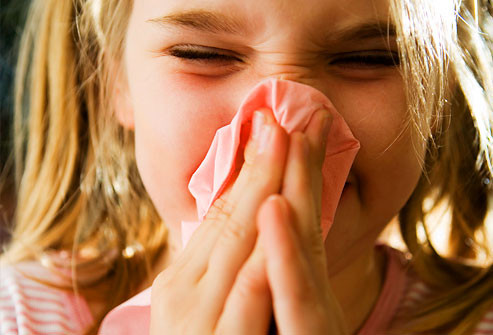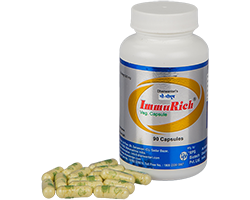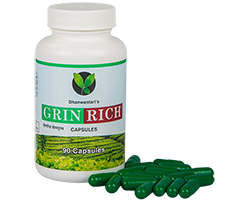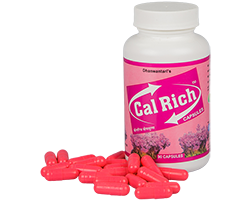Toll Free No.: 1800 2330 0007 email: admin@dhanwantari.com

Cold, Flu, & Cough
Coughs
Coughing is the body's way of removing foreign material or mucus from the lungs and upper airway passages or of reacting to an irritated airway. Coughs have distinctive traits you can learn to recognize. A cough is only a symptom, not a disease, and often the importance of your cough can be determined only when other symptoms are evaluated.
Productive coughs
A productive cough produces phlegm or mucus (sputum). The mucus may have drained down the back of the throat from the nose or sinuses or may have come up from the lungs. A productive cough generally should not be suppressed-it clears mucus from the lungs. There are many causes of a productive cough, such as:
 |
Viral illnesses. It is normal to have a productive cough when you have a common cold. Coughing is often triggered by mucus that drains down the back of the throat. | |
 |
Infections. An infection of the lungs or upper airway passages can cause a cough. A productive cough may be a symptom of pneumonia, bronchitis, sinusitis, or tuberculosis. | |
 |
Chronic lung disease. A productive cough could be a sign that a disease such as chronic obstructive pulmonary disease (COPD) is getting worse or that you have an infection. | |
 |
Stomach acid backing up into the esophagus This type of coughing may be a symptom of gastroesophageal reflux disease (GERD) and may awaken you from sleep. | |
 |
Nasal discharge (postnasal drip) draining down the back of the throat. This can cause a productive cough or the feeling that you constantly need to clear your throat. Experts disagree about whether a postnasal drip or the viral illness that caused it is responsible for the cough. | |
 |
Smoking or other tobacco use. Productive coughs in a person who smokes or uses other forms of tobacco is often a sign of lung damage or irritation of the throat or esophagus. |
Nonproductive coughs
A nonproductive cough is dry and does not produce sputum. A dry, hacking cough may develop toward the end of a cold or after exposure to an irritant, such as dust or smoke. There are many causes of a nonproductive cough, such as:
 |
Viral illnesses. After a common cold, a dry cough may last several weeks longer than other symptoms and often gets worse at night. | |
 |
Bronchospasm. A nonproductive cough, particularly at night, may mean spasms in the bronchial tubes (bronchospasm) caused by irritation. | |
 |
Allergies. Frequent sneezing is also a common symptom of allergic rhinitis. | |
 |
Medicines called ACE inhibitors that are used to control high blood pressure. Examples of ACE inhibitors include captopril (Capoten), enalapril maleate (Vasotec), and lisinopril (Prinivil, Zestril, or Zestoretic). | |
 |
Exposure to dust, fumes, and chemicals in the work environment. | |
 |
Asthma. A chronic dry cough may be a sign of mild asthma. Other symptoms may include wheezing, shortness of breath, or a feeling of tightness in the chest. For more information, see the topic Asthma in Teens and Adults. | |
 |
Blockage of the airway by an inhaled object, such as food or a pill. | |
 |
Many coughs are caused by a viral illness. Antibiotics are not used to treat viral illnesses and do not alter the course of viral infections. Unnecessary use of an antibiotic exposes you to the risks of an allergic reaction and antibiotic side effects, such as nausea, vomiting, diarrhea, rashes, and yeast infections. Antibiotics also may kill beneficial bacteria and encourage the development of dangerous antibiotic-resistant bacteria. | |
 |
A careful evaluation of your health may help you identify other symptoms. Remember, a cough is only a symptom, not a disease, and often the importance of your cough can only be determined when other symptoms are evaluated. Coughs occur with bacterial and viral respiratory infections. |
There is no sure way to prevent a cough. To help reduce your risk:
 |
Wash your hands frequently during the cold and flu season. This helps prevent the spread of a virus that may cause a cold or influenza. | |
 |
Avoid people who have a cold or influenza if possible. | |
 |
Don't smoke or use other forms of tobacco. A dry, hacking "smoker's cough" means your lungs are constantly irritated. For more information, see the topic Quitting Smoking. | |
 |
Avoid exposure to secondhand smoke, both at home and in the workplace. | |
 |
Increase your fluid intake. This helps keep the mucus thin and helps you cough it up. It also helps prevent dehydration. | |
 |
Get a flu shot (influenza vaccine) each year. For more information, see the topic Influenza. | |
 |
Get a pneumococcal shot(What is a PDF document?) if you are age 65 or older; if you have chronic lung disease, such as asthma or chronic obstructive pulmonary disease (COPD); if you smoke; or if you have a health risk that increases the seriousness of your symptoms. |
Cough preparations may help your cough. Avoid cold remedies that combine medicines to treat many symptoms. It is generally better to treat each symptom separately. There are two kinds of cough medicines: expectorants and suppressants.
Expectorants help thin the mucus and make it easier to cough mucus up when you have a productive cough.
 |
Use an expectorant if you have a cough that produces thick mucus and you are having difficulty coughing the mucus up. Don't depend entirely on an expectorant to thin the mucus. Drink plenty of water also. | |
 |
Look for expectorants containing guaifenesin |
Suppressants control or suppress the cough reflex and work best for a dry, hacking cough that keeps you awake.
 |
Use cough suppressants wisely. Don't suppress a productive cough too much, unless it is keeping you from getting enough rest. Coughing is useful because it brings up mucus from the lungs and helps prevent bacterial infections. People with asthma and other lung diseases need to cough. | |
 |
If you have a dry, hacking cough, ask your doctor about an effective cough suppressant medicine. |
Look for suppressant medicines containing dextrometho
 |
 |
Cold
 |
Sneezing, scratchy throat, runny nose -- everyone knows the first signs of a cold, probably the most common illness known. | |
 |
Children have about 6 to 10 colds a year. One important reason why colds are so common in children is because they are often in close contact with each other in daycare centers and schools | |
 |
Adults average about 2 to 4 colds a year, although the range varies widely. Women, especially those aged 20 to 30 years, have more colds than men, possibly because of their closer contact with children. | |
 |
Seasonal changes in relative humidity also may affect the prevalence of colds. The most common cold-causing viruses survive better when humidity is low—the colder months of the year. Cold weather also may make the inside lining of your nose drier and more vulnerable to viral infection. |
Naturopathy
The cold is, in fact, nature’s simplest mechanism of eliminating wastes accumulated in the system–popularly known as “Healing crisis”.
Allergic Rhinitis
Watery nasal discharge, sneezing, itching of eyes and nose, and an increased eosinophil count in the blood are common features of Allergic Rhinitis. Like the common cold, it is self–limiting (does not run a long course in one episode) in nature.
Treatment
The body’s immunity (resistance) is to be improved by cleansing the internal system with a short fast of 3 days or till the symptoms last, along with regular warm water enema early in the morning.
 |
Warm salt water or warm honey water gargling frequently soothes the throat. | |
 |
Drinking plenty of warm water with honey and ginger or tulsi water with honey causes counter irritation providing relief from sore throat. | |
 |
Hot foot arm bath, which relieves congestion in the head region, provides relief from heaviness in the head and other symptoms of cold. | |
 |
Generally, secretions of the nasal passages are slightly acidic, but during cold they become alkaline. Their acidity can be maintained by inhaling steam. Eucalyptus oil or camphor can be added to the water, which is used for this purpose. | |
 |
Throat pack at night till symptoms of sore throat persist is also an effective measure. | |
 |
Steam/sauna bath twice a week facilitates elimination. | |
 |
Jalaneti and Sutraneti help clear nasal secretions opening the nasal passages. | |
 |
To prevent frequent attacks of cold/rhinitis one should regularly take adequate quantities of Vitamin C, which improves one’s resistance. Citrus fruit juices, such as lemon, orange sweet lime and Indian gooseberries are excellent sources of Vitamin C. Fruits such as guava have also fair sources of Vitamin C. |
Flu
 |
Influenza (the flu) circulates all over the world, and it can affect anyone, regardless of their age or health. | |
 |
The flu can lead to complications like pneumonia, ear infections, and sinus infections. It can also worsen existing conditions, like asthma or diabetes. | |
 |
Each year, thousands of people die from the flu and its complications. | |
 |
Swine Flu (H1N1) Swine flu has recently been in the news, Current flu vaccines protect against swine and seasonal flu. Swine flu and the regular seasonal flu share many symptoms: cough, sore throat, fever (although not everyone with flu gets a fever), and body aches. But many people with swine flu also develop stomach problems, such as vomiting and diarrhea. |
What is flu?
Influenza, commonly shortened to "flu," is an extremely contagious respiratory illness caused by influenza A or B viruses. Flu appears most frequently in winter and early spring. The flu virus attacks the body by spreading through the upper and/or lower respiratory tract.
What's the difference between a cold and flu?
The common cold and flu are both contagious viral infections of the respiratory tract. Although the symptoms can be similar, flu is much worse. A cold may drag you down a bit, but the flu can make you shudder at the very thought of getting out of bed.
Congestion, sore throat, and sneezing are common with colds. Both cold and flu bring coughing, headache, and chest discomfort. With the flu, though, you are likely to run a high fever for several days and have headache, myalgia, fatigue, and weakness. Usually, complications from colds are relatively minor, but a severe case of flu can lead to a life-threatening illness such as pneumonia.
More than 100 types of cold viruses are known, and new strains of flu evolve every few years. Since both diseases are viral, antibiotics cannot conquer cold or flu. Remember: Antibiotics only treat bacterial infections.
A few antiviral medications are available to treat flu. But there are no medications that specifically defeat the common cold. Antibiotics may be helpful if there is a secondary bacterial infection.
Our Recommended Products
Obesity
Old Age











